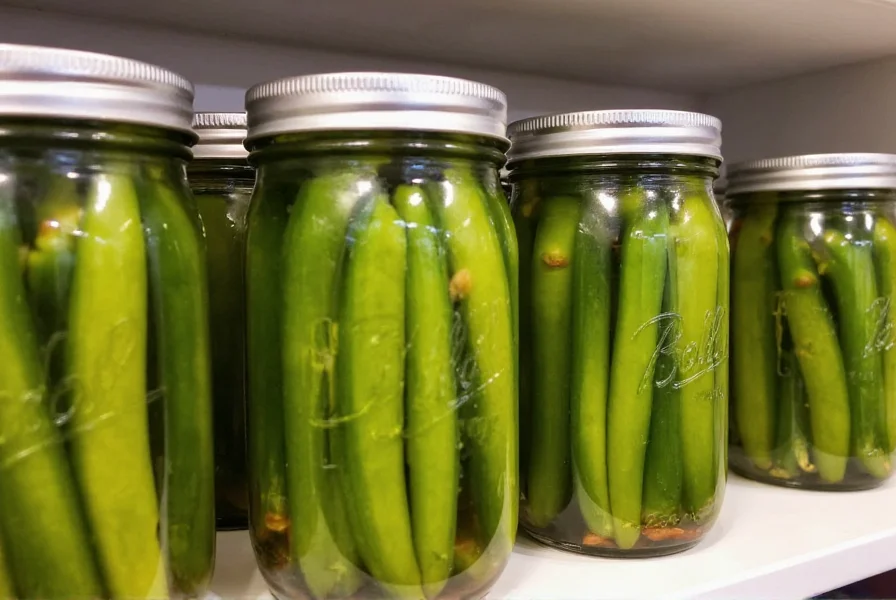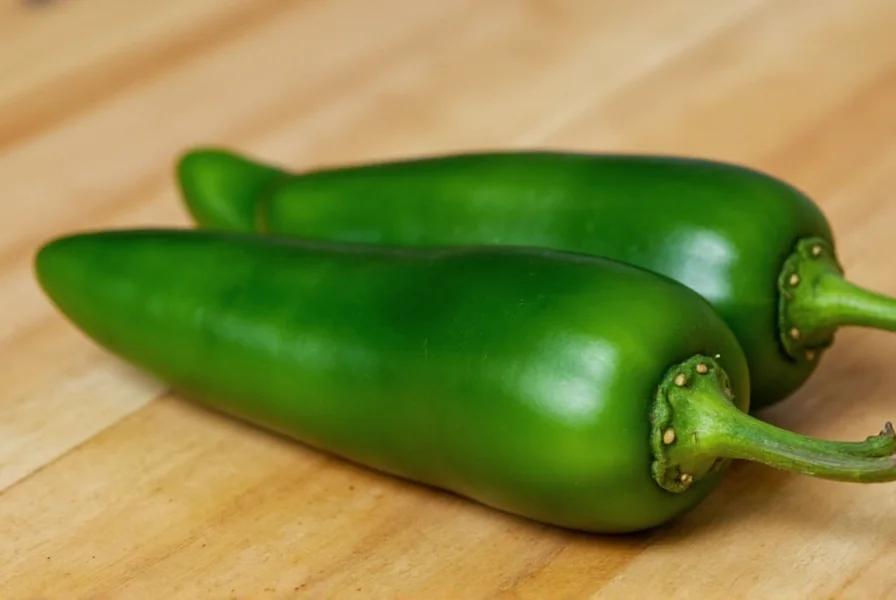Canning jalapeños allows you to enjoy these spicy peppers year-round while maintaining their vibrant flavor and heat. Whether you grow your own peppers or find a great deal at the market, preserving them through proper canning techniques ensures food safety and quality. This guide provides a reliable method based on recommendations from the National Center for Home Food Preservation and USDA guidelines.
Essential Equipment for Canning Jalapeños
Before starting your jalapeño canning project, gather these necessary tools:
| Equipment | Purpose | Alternative Options |
|---|---|---|
| Water bath canner | Processes jars in boiling water | Large stock pot with rack |
| Glass canning jars | Storage containers (pint or quart) | Mason jars with new lids |
| Jar lifter | Safely handles hot jars | Heavy-duty tongs |
| Canning funnel | Prevents spills when filling jars | Wide-mouth funnel |
| Bubble remover | Removes air pockets | Clean chopstick |
Food Safety Considerations for Canning Jalapeños
Proper food safety is non-negotiable when canning low-acid vegetables like jalapeños. The primary risk is Clostridium botulinum, which causes botulism. To prevent this dangerous bacteria:
- Maintain proper acidity with at least 5% vinegar in your brine
- Never reduce vinegar amounts in tested recipes
- Use only fresh, firm jalapeños without blemishes
- Follow recommended processing times precisely
- Always use new lids for proper sealing
Remember that pressure canning isn't necessary for jalapeños when using a vinegar-based brine, as the acid creates an environment where harmful bacteria cannot survive.
Step-by-Step Water Bath Canning Process
Preparing Your Jalapeños
Wear gloves to protect your hands from capsaicin, the compound that makes peppers hot. Wash peppers thoroughly, then:
- Remove stems and slice peppers to your preferred size (rings, chunks, or leave whole with slits)
- For milder peppers, remove seeds and white membranes
- Blanch peppers in boiling water for 3 minutes to preserve texture
- Immediately transfer to ice water to stop cooking
Creating the Proper Brine
The brine's acidity is critical for safe jalapeño canning. Use this reliable ratio:
- 3 cups distilled white vinegar (5% acidity)
- 1 cup water
- 2 tablespoons pickling salt
- Optional: 1 teaspoon garlic powder or 2 garlic cloves per jar
Bring the mixture to a rolling boil before using. Never use homemade vinegar or reduce vinegar amounts, as this compromises safety.
Filling and Processing Jars
Follow these precise steps for successful canning:
- Sterilize jars by boiling for 10 minutes or running through dishwasher
- Pack jalapeños into jars, leaving ½ inch headspace
- Add any desired spices to jars
- Pour hot brine over peppers, maintaining ½ inch headspace
- Remove air bubbles with a non-metallic utensil
- Wipe jar rims clean with a damp cloth
- Apply new lids and rings fingertip-tight
- Process pints for 10 minutes, quarts for 15 minutes in boiling water bath
- Remove jars and cool undisturbed for 12-24 hours
Testing Seals and Proper Storage
After cooling, verify your jars have sealed properly:
- Press the center of each lid - it shouldn't flex up and down
- Listen for the characteristic "ping" sound as jars cool
- Remove rings and try lifting jars by the lid (properly sealed lids will hold)
Store properly sealed jars in a cool, dark place for up to 18 months. Refrigerate after opening. Any jars that didn't seal should be refrigerated and used within 2 weeks.

Troubleshooting Common Canning Issues
Even experienced canners encounter problems. Here's how to handle common jalapeño canning issues:
- Unsealed jars: Refrigerate and use within 2 weeks, or reprocess within 24 hours with a new lid
- Cloudy liquid: Usually caused by minerals in hard water - still safe if properly sealed
- Discolored peppers: Can indicate improper acidity - when in doubt, discard
- Soft peppers: Overprocessing or using overripe peppers
- Bubbling or bulging lids: Immediate sign of spoilage - discard without tasting
Popular Jalapeño Canning Variations
Once you've mastered basic canning, try these tested variations:
- Pickled jalapeños: Add sliced onions and carrots to the jars before filling with brine
- Spicy jalapeño jelly: Combine pureed jalapeños with apple juice and pectin
- Chipotle-style: Smoke jalapeños before canning for a deeper flavor profile
- Garlic jalapeños: Add 2-3 fresh garlic cloves per jar before processing
Always use tested recipes when modifying your basic jalapeño canning process to ensure safety.
Frequently Asked Questions
How long do home-canned jalapeños last?
Properly canned and stored jalapeños maintain best quality for 12-18 months. Always check for signs of spoilage before consuming, and use within 2 weeks after opening. The acidity helps preserve them longer than many other canned vegetables.
Can I use apple cider vinegar instead of white vinegar for canning jalapeños?
Yes, you can substitute apple cider vinegar as long as it has 5% acidity. The flavor will be slightly different (more fruity), but equally safe. Avoid homemade vinegars or those with unknown acidity levels, as proper acidity is critical for preventing botulism.
Why do my canned jalapeños become soft?
Soft jalapeños typically result from overprocessing, using overripe peppers, or adding enzymes that break down pectin. To maintain crispness, use firm, fresh peppers, avoid overcooking during blanching, and consider adding calcium chloride (as directed in tested recipes) which helps maintain texture without affecting safety.
Do I need to refrigerate canned jalapeños after opening?
Yes, always refrigerate opened jars of canned jalapeños and use within 2-3 weeks. The vinegar-based brine provides preservation at room temperature only in unopened, properly sealed jars. Once exposed to air and potential contaminants, refrigeration is necessary to maintain safety and quality.
Can I can jalapeños without vinegar for a milder flavor?
No, vinegar (or another acid) is essential for safe water bath canning of jalapeños. Without proper acidity (minimum pH of 4.6), the risk of botulism increases significantly. If you prefer milder heat, remove seeds and membranes rather than reducing vinegar, which would compromise safety. Pressure canning would be required for low-acid preservation, but isn't recommended for peppers alone.











 浙公网安备
33010002000092号
浙公网安备
33010002000092号 浙B2-20120091-4
浙B2-20120091-4